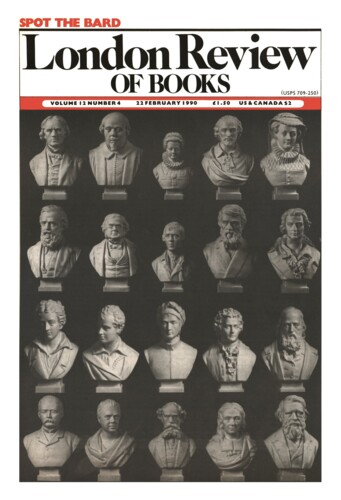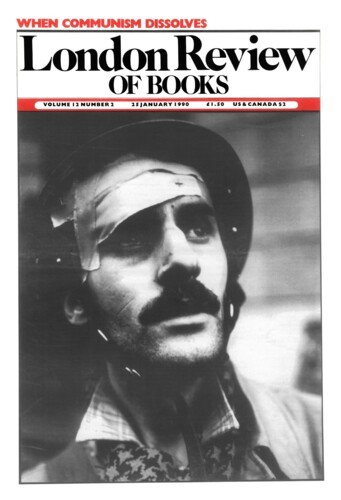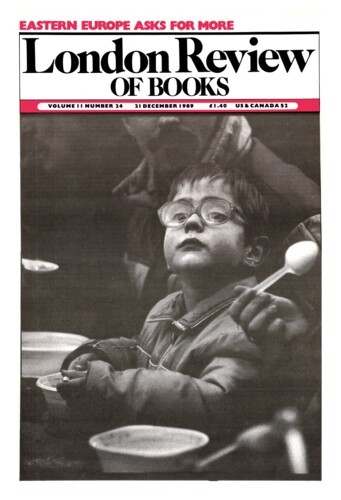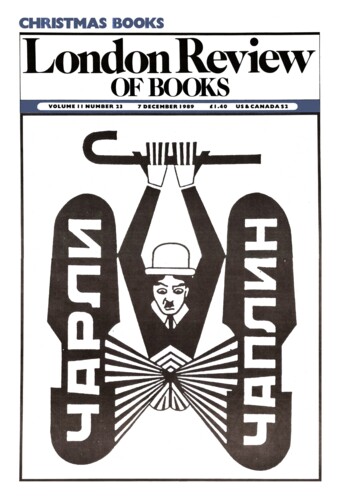Havel’s Castle
J.P. Stern, 22 February 1990
The social memory of small countries is punctuated by dates which recall national defeats. When the students of Prague assembled in the late afternoon of Friday 17 November 1989 in the city’s main thorough-fare, the Narodni Street, the purpose of their officially-sanctioned demonstration was to commemorate the 50th anniversary of the death of one of their comrades, Jan Opletal, murdered by the Germans on 17 November 1939; at the same time they were remembering the death of Jan Palach, the student who, on 16 January 1969, burned himself to death at the foot of the statue of the country’s patron saint, the good King Wenceslas, in protest against the invasion of Czechoslovakia by the armies of the Soviet Union and three other countries of the Communist bloc. Now, for the first time in twenty years, ‘the grown-ups’ were taking the students and actors who joined them seriously: ‘our children shamed us into action.’ By 9 p.m. a crowd of some fifty thousand people were moving towards Wenceslas Square. The violence which the police (white helmets, riot shields and truncheons) used to disperse the crowd led to some broken limbs and numerous concussions, but there were no deaths. This is how Czechoslovakia’s ‘kind of peaceable revolution’ began, and it was over, without any further violence, 24 days later. It was not, to begin with, a nationwide uprising. Both television and radio were slow to give up-to-date news; people had to rely on West German stations and on Radio Freedom in Munich. In the provinces they suspected that these were the cavortings of a few crackpot intellectuals in Prague, most of whom had been in gaol anyway.




